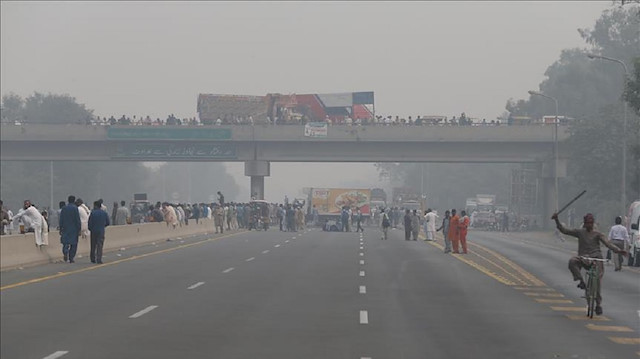
Government ordered the arrest of protesters involved in damaging public property
Pakistani authorities have launched a nationwide move against protesters involved violence and damage in last week's protests against the acquittal of a Christian woman accused of blasphemy, local media reported Monday.
On Wednesday, the Supreme Court acquitted Aasia Bibi who had been sentenced to death by a district court in November 2010 for blasphemy against Prophet Muhammad.
Police in the northeastern Punjab province arrested 1,100 suspects involved in rioting and damaging public and private property, according to English daily Dawn.
Meanwhile, 120 people belonging to various groups were arrested in the capital Islamabad.
On Saturday, the interior ministry ordered the provincial governments to arrest all people who were involved in the attacks on the police as well as those who damaged vehicles and public properties.
"State is concerned for the loss of citizen, we will leave no stone unturned to identify the source of vandalism and will stand for all the citizen who suffered from the people who vandalized property of innocent people," Interior Minister Shehryar Afridi said in a tweet.
"Pakistan has to rise and such anonymous forces will be unveiled," Afridi added.
On Friday, the government reached an agreement with religious groups, including the newly-emerged Sunni group, Tehreek-e-Labbaik Pakistan (TLP) -- who had blocked the roads across the country and halted daily life -- to end protest.
The religious groups agreed to call off the protest following government assurances of placing a travel ban on Bibi and no objection to a review petition against the verdict in the top court.
The government also agreed with TLP to release all protesters who were arrested by the police during the violent protest.
The move to release the suspects who damaged public property and attacked the police was largely criticized by the public on social media .
In Pakistan, blasphemy against Islam or Prophet Muhammad is a criminal offense that can carry the death penalty. While the state has never executed anyone under the law, mere allegations have stirred mass protests and violence.








